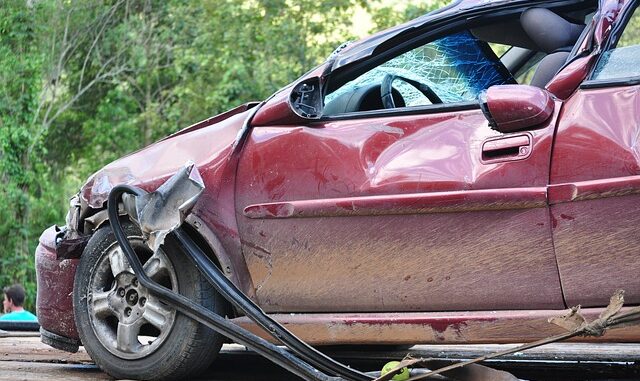
Car accidents in Ontario often result in varying degrees of property damage, ranging from minor dents to severe structural issues. When faced with assessing the damage to their vehicles, drivers must navigate the decision between repairable damage and declaring their vehicle a write-off. This article explores the factors influencing this decision-making process and provides insights into what drivers in Ontario should consider following a car accident.
Assessing the Damage
- Initial Evaluation: Immediately after a car accident in Ontario, drivers should conduct a preliminary assessment of the damage to their vehicle. This includes inspecting visible dents, scratches, broken lights, and potential structural issues like frame damage.
- Insurance Inspection: Insurance companies in Ontario typically conduct their own assessment of the vehicle’s damage. An insurance adjuster will evaluate the extent of the damage, taking into account repair costs and the vehicle’s pre-accident value.
Write-off Criteria
- Total Loss Threshold: In Ontario, a vehicle is generally considered a write-off (or total loss) if the cost of repairs exceeds a certain percentage of its actual cash value (ACV). This threshold varies but is commonly set around 70% to 80% of the vehicle’s ACV.
- Severity of Damage: Factors such as extensive frame damage, engine or transmission issues, or damage to essential safety features may contribute to a vehicle being declared a write-off. Insurance companies use these criteria to determine whether repairs are economically feasible.
Benefits of Repairing the Vehicle
- Maintaining Value: Repairing minor to moderate damage can help preserve the vehicle’s resale value. Well-maintained cars typically fetch higher prices in the used car market, which can be advantageous if the owner plans to sell or trade-in the vehicle in the future.
- Personal Attachment: For many drivers in Ontario, their vehicle holds sentimental value. Repairing the damage allows them to retain their familiar vehicle, which may have personal significance beyond its monetary worth.
Challenges with Repairs
- Cost Considerations: Even if repairs are feasible, they can be expensive depending on the extent of the damage and the availability of replacement parts. Drivers should consider whether the cost of repairs justifies retaining the vehicle versus opting for a replacement.
- Quality of Repairs: Ensuring that repairs are carried out by reputable mechanics or auto body shops is crucial. Poorly executed repairs can compromise the vehicle’s safety, performance, and resale value.
Making an Informed Decision
- Consulting Insurance Policies: Drivers in Ontario should review their insurance policies to understand coverage limits and deductibles related to vehicle repairs or write-offs. This knowledge helps them make informed decisions following an accident.
- Seeking Professional Advice: Insurance adjusters and auto repair professionals can provide valuable guidance based on their expertise. They can assess the damage accurately and recommend whether repairs are viable or if the vehicle should be declared a write-off.
Environmental Considerations
- Impact of Write-offs: Declaring a vehicle a write-off often results in its salvage or disposal. Responsible disposal methods ensure that hazardous materials are properly managed, minimizing environmental impact.
- Repair Sustainability: Repairing vehicles instead of scrapping them reduces the demand for new vehicle production, which aligns with environmental sustainability goals in Ontario and globally.
Conclusion
Deciding between repairing a damaged vehicle and declaring it a write-off is a significant post-accident consideration for drivers in Ontario. Factors such as repair costs, insurance coverage, and personal attachment to the vehicle all play crucial roles in this decision-making process.
By understanding the criteria used to determine write-offs, consulting insurance policies, and seeking expert advice, drivers can navigate the aftermath of car accidents more confidently. Whether opting for repairs to restore their vehicle’s condition or accepting a write-off settlement, drivers can make choices that best suit their financial, practical, and personal needs in Ontario’s automotive landscape.
In summary, while the decision to repair or write-off a damaged vehicle may seem daunting, informed choices ensure that drivers in Ontario can effectively manage property damage following car accidents, thereby mitigating financial and logistical challenges associated with vehicle repairs and replacements.
